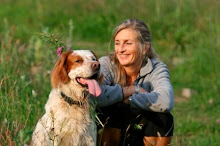"Reference, reference, reference!"
Tuesday, February 24, 2009
Renting with pets - how to find a rental when you own a pet.
Posted by Tim at 11:06 AM 0 comments
Labels: laws, renting with pets
Tuesday, February 17, 2009
Yes you can take your pets on holday too!
 TRAVEL at ninemsn has some useful information on taking your pets on your next trip.
TRAVEL at ninemsn has some useful information on taking your pets on your next trip.
"Leaving your four-legged friend behind when you go on holiday can be a traumatic time — as soon as they see the bags being loaded into the car the look on their faces is enough to melt your heart and even make you think twice about going. So why not take them with you next time?"Read more at ninemsn
Posted by Tim at 1:29 PM 0 comments
Saturday, February 14, 2009
Disasters and the importance of identification
 The recent bushfires in Victoria tragically claimed the lives of many, including my honours supervisor from La Trobe University who I had remained good friends with and whom I will miss very much. As well as the loss of human life, many animals, both wild and domestic lost their lives also. Although many animals fled and managed to survive, the difficult task of reuniting domestic animals, especially cats and dogs, with their owners can be made even harder if the animal lacks identification.
The recent bushfires in Victoria tragically claimed the lives of many, including my honours supervisor from La Trobe University who I had remained good friends with and whom I will miss very much. As well as the loss of human life, many animals, both wild and domestic lost their lives also. Although many animals fled and managed to survive, the difficult task of reuniting domestic animals, especially cats and dogs, with their owners can be made even harder if the animal lacks identification.
Research which looked at the aftermath of Hurricane Katrina found that owners that were reunited with lost pets had lower rates of depression than those that were not. This demonstrates the vital companionship role our pets play. Indeed, I have read many stories over the past week telling of Victorians trying to save their pets from the bushfires. The story that stayed with me was that of the woman being winched up to a rescue helicopter who unclipped her harness and fell to the ground to save her dog, both survived. Sadly, not all of these stories had a happy ending as some people died trying to save their animals.
For those humans and animals who survived the fires it is important that they are reunited as soon as possible. Animal shelters are currently working to make this happen however their efforts are hampered when animals lack identification. Microchips and identification tags are relatively inexpensive forms of identification and can help to reunite lost pets with their owners quickly. The important thing to remember is to update your details if you move house or change your phone number. For more information on lost and/or injured pets see the RSPCA, VAAT and DPI websites.
Posted by Dr Kate Mornement at 1:59 PM 0 comments
Labels: Disaster, identification, renting with pets
Wednesday, February 11, 2009
Cats & Stats
.jpg) A study has been published by a team from Sydney University on cat ownership in metropolitan Sydney. A random survey of over 2700 homes collected some interesting statistics:
A study has been published by a team from Sydney University on cat ownership in metropolitan Sydney. A random survey of over 2700 homes collected some interesting statistics:
- 33% of households had one or more cats
- of the cat owning households, 76% had only one cat, and 19% had two cats
- there were more female cats (55%) than male cats (45%)
- the avergae age for a cat was 7 years
- 97.3% of cats were desexed (spayed / neutered)
- Crossbred cats (moggies) outnumbered pedigree cats by a ratio of 3.3:1.
- The Burmese was the most common pure-bred breed, followed by the Persian.
- Only 5.8% of cats had never visited a veterinarian.
Posted by Tim at 12:36 PM 0 comments
Labels: cat breeds, cats, laws
Monday, February 2, 2009
Is being licked by a dog unhygienic?
 New research from the College of Veterinary Medicine at Kansas State University in the USA found that dogs are likely to get germs from their owners.
New research from the College of Veterinary Medicine at Kansas State University in the USA found that dogs are likely to get germs from their owners.
Posted by Tim at 10:22 AM 0 comments
Labels: dog, health, Human Companion Animal Bond

.jpg)





